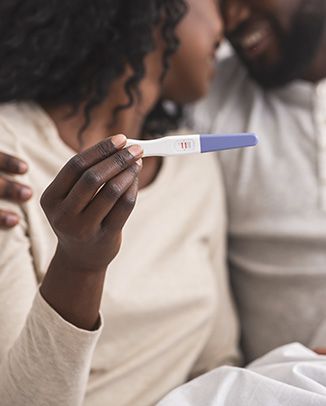

Most people have a strong desire to conceive a child at some point in their life. Approximately 85 per cent of the couples achieve pregnancy within one year of trying. Additionally, 7% per cent of the remaining conceives within the second year of trying. As a result, infertility is defined as the inability to conceive within 12 months.
If you and your partner are seeking help for infertility from your doctor, he may suggest a technique called “artificial insemination”.
AI or Artificial insemination is a procedure in which the sperm is directly induced into the woman’s cervix or into her uterus. During natural conception, the sperm has to travel from the vagina through the cervix into the uterus, up to the fallopian tubes. But in Intrauterine Insemination (IUI), the sperms are concentrated, and placed directly into the uterus, when placed on the cervix it is known as Intracervical Insemination (ICI).
Artificial insemination benefits the couples who are unable to conceive after trying for months. It is recommended by Centers for Disease Control and Prevention (CDC) to see a fertility doctor if she is:
Diagnosis:
The first step is to talk to your infertility specialist to see what is suitable for your condition, ICI or IUI. In some women the cervical mucus is too thick to allow easy penetration of sperm, in such cases, IUI would give a better probability of success. The diagnosis will be done by your physician to see the clinic reasons why IUI should be performed rather than an ICI or vice-versa.
Cost:
The cost of IUI is higher than ICI because in IUI the sample received from the male partner, it is first washed in the laboratory and then selected sperms are injected into the female. This procedure is done because the semen contains prostaglandin – a hormone which can cause severe cramping if unwashed semen is placed directly into the uterine cavity. IUI should be performed under the supervision of an infertility specialist, but not necessarily for an ICI.
Artificial insemination is suggested in the following medical situations:
CureIndia helps you choose the right doctor for your medical treatment. Most of the doctors in our associated hospitals have been internationally trained and are active members of many international medical councils and associations. Let's hear from some of the most reputed doctor's for infertility treatment in India.
Success rates of artificial insemination vary, some reasons are:
The procedure won’t work for everyone. Some couples try it three to four times before getting pregnant, and others may not have success at all. The doctor suggests trying it at least three to four before switching to another treatment. If AI doesn’t help you, then you can try other approaches, such as in vitro fertilization.


IVF/IUI/ICSI
Best IVF packages
Be proud parents
Consult Infertility Specialists
Thousands of successful IVF deliveries
Consult top IVF Clinics